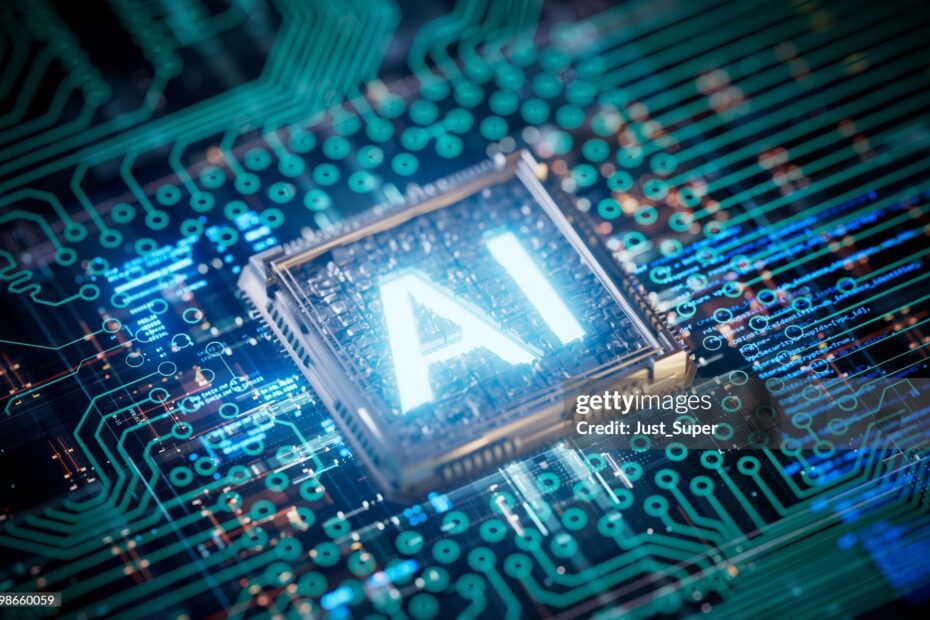Did you know that by 2025, it’s estimated that 85 million jobs might be displaced due to a shift in labor between humans and machines? That’s a huge number, right? This statistic really shows how important it is for us to understand the role of Artificial Intelligence (AI) in our workplaces today. AI is not just some fancy tech; it’s changing how we work every day. From chatbots assisting customers to smart tools making tasks easier, AI is becoming a big part of our jobs.
In this article, we’re going to see how AI is shaping our workplaces and what trends we should keep an eye on. Whether you’re a business owner, an employee, or just someone curious about the future of work, there’s something here for you. Let’s dive into the exciting world of AI and its impact on our jobs.
The Rise of Automation
Automation is one of the biggest ways AI is changing workplaces. But what does that really mean? Simply put, automation uses technology to perform tasks that were once done by people. This can range from simple tasks like data entry to more complex processes like managing supply chains.
Understanding Automation
When we talk about automation, we’re looking at how machines can take over repetitive tasks. This means less time spent on boring stuff and more time for creative thinking. For example, think about how companies use robots in factories. These robots can assemble products faster than humans, which helps businesses save money and time.
Benefits of Automation
So, why should we care about automation? Here are a few benefits:
- Efficiency: Machines can work 24/7 without needing breaks.
- Accuracy: Automated systems make fewer mistakes than humans.
- Cost Savings: Companies can reduce labor costs by using machines for repetitive tasks.
Jobs Affected
Of course, not all jobs will be safe from automation. Some roles are more likely to change than others. Jobs that involve routine tasks are at higher risk. For example:
- Data entry clerks
- Assembly line workers
- Customer service representatives
But don’t worry too much! While some jobs may disappear, new ones will also be created. This leads us to a new question: What kinds of jobs will emerge because of AI?
Remote Work and AI
The COVID-19 pandemic changed how we work forever. Many people started working from home, and guess what? AI played a big role in making remote work possible. Let’s see how AI tools are helping us stay connected and productive while working from home.
AI Tools for Remote Work
There are so many cool tools out there that use AI to help remote teams collaborate better. For instance:
- Video Conferencing Tools: Apps like Zoom use AI to improve video quality and reduce background noise.
- Project Management Software: Tools like Trello or Asana help teams track progress and manage tasks efficiently.
- Chatbots: These can answer common questions quickly, freeing up human workers for more complex issues.
Impact on Productivity
You might wonder if working from home with these tools really boosts productivity. The answer is yes! Studies show that many people find they are more productive when they can work in their own space. With fewer distractions from coworkers and more flexible hours, employees often feel happier and more focused.
Challenges of Remote Work
But it’s not all sunshine and rainbows. Remote work also comes with challenges:
- Isolation: Some workers miss the social interaction of an office environment.
- Work-Life Balance: It can be hard to separate work from personal life when your office is at home.
- Tech Issues: Not everyone has access to reliable internet or the latest technology.
These challenges remind us that while AI helps us connect remotely, we still need to find ways to support each other.
Enhancing Employee Engagement
AI isn’t just about making things faster; it’s also about making workplaces better for everyone. One way it does this is through employee engagement.
AI in HR
Human Resources (HR) departments are using AI to improve hiring processes and keep employees happy. For example:
- Resume Screening: AI can quickly scan resumes for the best candidates.
- Employee Surveys: Tools can analyze feedback from employees to see how they feel about their jobs.
Personalized Learning
Another exciting trend is personalized learning. With AI, companies can create training programs tailored just for you. This means you get training that fits your skills and needs rather than a one-size-fits-all approach.
Feedback Systems
Feedback is super important for growth at work. AI helps improve feedback systems by analyzing performance data and providing insights on how employees can improve their skills. This means employees get constructive feedback more often, leading to better job satisfaction and performance.
The Future of Jobs
As we look ahead, it’s clear that AI will change the job market significantly. But what does this mean for you?
New Job Roles
While some jobs may disappear due to automation, new roles will also emerge. Think about careers like:
- AI Trainers: People who teach machines how to learn.
- Data Analysts: Professionals who interpret data generated by AI systems.
- Cybersecurity Experts: With more tech comes the need for security experts to protect data.
Skills Needed
To thrive in this new job market, certain skills will become increasingly important:
- Tech Savvy: Understanding basic technology will be essential.
- Adaptability: Being open to change will help you succeed.
- Critical Thinking: Problem-solving skills will be crucial as jobs evolve.
Adapting to Change
It’s vital for workers to adapt as roles change due to AI advancements. Continuous learning will be key here. Whether through online courses or workshops, staying updated on new skills will help you remain competitive in your field.
Conclusion
AI is reshaping our workplaces in ways we never imagined possible. From automation making tasks easier to enhancing employee engagement through personalized learning, the impact is profound. As we’ve seen, while there are challenges ahead—like job displacement—there are also exciting opportunities for growth and innovation.
I encourage you to think about how these trends might affect your own job or workplace environment. What changes do you see coming? And how can you prepare yourself for them? Remember, staying informed and adaptable is crucial as we move forward into this new era of work powered by artificial intelligence.
Feel free to share your thoughts or experiences in the comments below; I’d love to hear from you!

